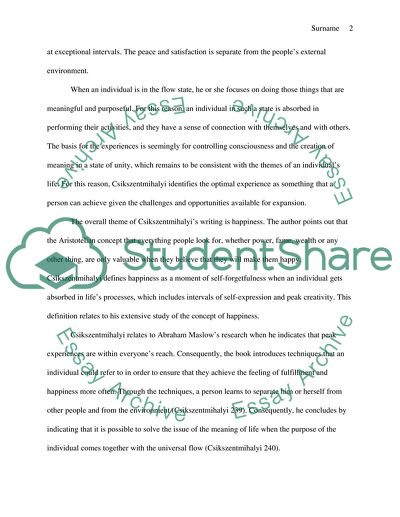Cite this document
(FLOW Assignment Book Report/Review Example | Topics and Well Written Essays - 2033 words, n.d.)
FLOW Assignment Book Report/Review Example | Topics and Well Written Essays - 2033 words. Retrieved from https://studentshare.org/psychology/1688186-quotflowquot-assignment
FLOW Assignment Book Report/Review Example | Topics and Well Written Essays - 2033 words. Retrieved from https://studentshare.org/psychology/1688186-quotflowquot-assignment
(FLOW Assignment Book Report/Review Example | Topics and Well Written Essays - 2033 Words)
FLOW Assignment Book Report/Review Example | Topics and Well Written Essays - 2033 Words. https://studentshare.org/psychology/1688186-quotflowquot-assignment.
FLOW Assignment Book Report/Review Example | Topics and Well Written Essays - 2033 Words. https://studentshare.org/psychology/1688186-quotflowquot-assignment.
“FLOW Assignment Book Report/Review Example | Topics and Well Written Essays - 2033 Words”, n.d. https://studentshare.org/psychology/1688186-quotflowquot-assignment.


